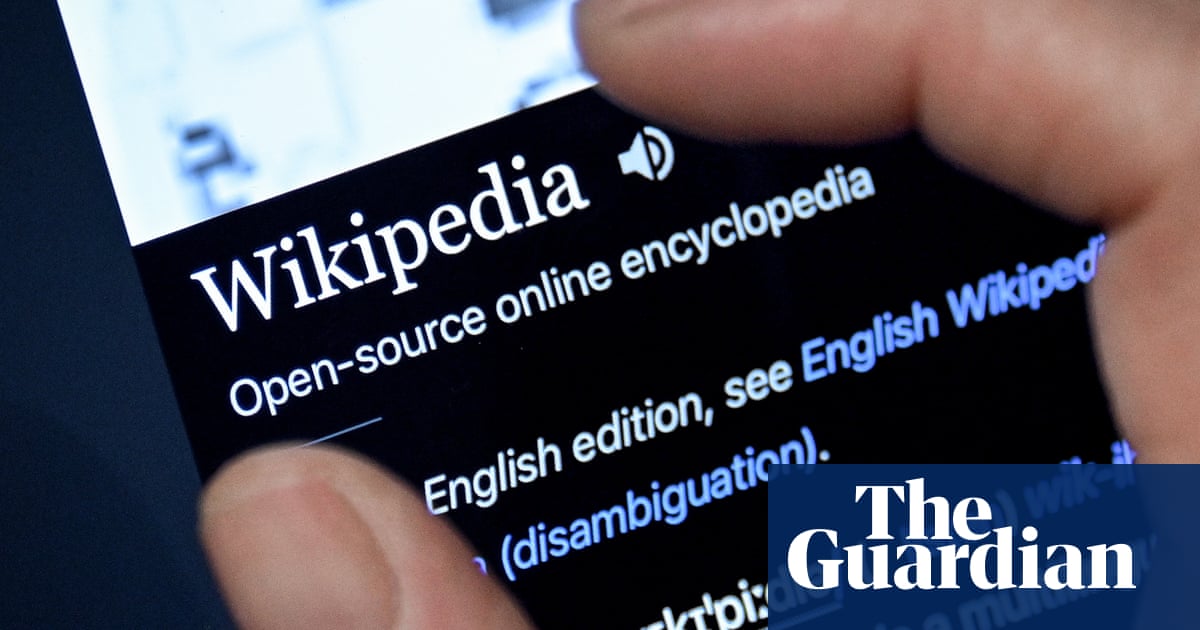The charity that hostsWikipediais challenging the UK’s online safety legislation in the high court, saying some of its regulations would expose the site to “manipulation and vandalism”.
In what could be the first judicial review related to the Online Safety Act, Wikimedia Foundation claims it is at risk of being subjected to the act’s toughest category 1 duties, which impose additional requirements on the biggest sites and apps.
The foundation said if category 1 duties were imposed on it, the safety and privacy of Wikipedia’s army of volunteer editors would be undermined, its entries could be manipulated and vandalised, and resources would be diverted from protecting and improving the site.
Announcing that it was seeking a judicial review of the categorisation regulations, the foundation’s lead counsel, Phil Bradley-Schmieg, said: “We are taking action now to protect Wikipedia’s volunteer users, as well as the global accessibility and integrity of free knowledge.”
The foundation said it was not challenging the act as a whole, nor the existence of the requirements themselves, but the rules that decide how a category 1 platform is designated.
Those rules were set in secondary legislation by the technology secretary, Peter Kyle. The foundation is challenging Kyle’s decision to proceed with that statutory instrument, via a judicial review, where a judge reviews the legality of a decision made by a public body, at the high court of England and Wales.
Under an interpretation of one of the category 1 duties, the foundation said, if it chose not to verify Wikipedia users and editors, it would have to allow anonymous users to block other posters from fixing or removing any content,under the act’s measures to tackle online trolls.
As a consequence, thousands of volunteer editors on the site would need to undergo identity verification, which breaches the foundation’s commitment to collecting minimal data about readers and contributors.
Punishments for breaching the act include fines of either £18m or 10% of a company’s global turnover and, in extreme cases, access to a service being blocked in the UK.
Bradley-Schmieg said volunteer communities working in more than 300 languages could be exposed to “data breaches, stalking, vexatious lawsuits or even imprisonment by authoritarian regimes”.
“Privacy is central to how we keep users safe and empowered. Designed for social media, this is just one of several category 1 duties that could seriously harm Wikipedia,” he said.
The foundation argues that the definitions of a category 1 service are too broad and vague, including: having an algorithm that effects what content people view; having content sharing or viewing features; and what defines a “popular” site, which focuses on how many users visit a platform and not how they use it.
“We regret that circumstances have forced us to seek judicial review of the OSA’s categorisation regulations,” said Bradley-Schmieg. “Given that the OSA intends to make the UK a safer place to be online, it is particularly unfortunate that we must now defend the privacy and safety of Wikipedia’s volunteer editors from flawed legislation.”
A UK government spokesperson said: “We are committed to implementing the Online Safety Act to create a safer online world for everyone. We cannot comment on ongoing legal proceedings.”
